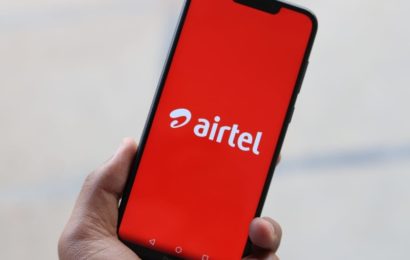
The Federal Government through the Nigerian Communications Commission (NCC) has concluded statutory plans to move the telecommunication sector of the country into the adoption of digital innovation for virtual Subscriber Identification Modules (SIM), otherwise known as; Embedded Subscriber Identification Modules (e-SIM),
eSIM is a global specification developed by telecoms trade body the GSMA, which connected consumer devices to mobile networks without the need for a SIM card.

Already, the telecommunication regulator has granted approval for two Mobile Network Operators (MNOs), MTN Nigeria and 9Mobile, to carry out trials for the adoption of the embedded Subscriber Identification Modules (e-SIM) Service as part of preparation into the next BIG thing in Nigeria’s telecoms sector.
According to inside source, the trial, approved to run for a period of one year, will involve testing not less than 5,000 e-SIMs on the two networks before a nationwide adoption of the digital technology is considered, and the trial would also be subjected to compliance to a number of regulatory policies.
These policies include full compliance of the MNOs to the Registration of Telecoms Subscribers Regulations 2011; the Mobile Number Portability Regulations and Business Rules 2015; Guidelines on SIM Replacement 2017; and non-degradation of the Quality of Service (QoS) experience by users of e-SIMs.
The Executive Vice Chairman of NCC, Prof. Umar Garba Danbatta, was quoted stating that “the primary objective of the e-SIM trial is to assess the technical performance of e-SIM on telecoms service providers’ network with a set performance indicator.
“e-SIM is a technology that will eliminate the need for physical SIM card slots on mobile devices in the near future. The trial is in line with the Commission’s forward-looking regulatory approach to ensure Nigeria’s telecoms ecosystem is in tandem with global best practices.
READ ALSO: Nigeria Govt Approves National Roaming Services for MTN, 9mobile
“An e-SIM is a small chip that is embedded on a mobile phone or smart devices. It is designed for convenience, flexibility and simplicity. The virtual SIM makes it easier for subscribers to choose a pre-paid plan provider and switch between network operators.
“The information on the e-SIM is rewritable by operators and the identification information can be updated over time,” he said.
Although the huge majority of phones don’t support eSIM, it’s only a matter of time before many smartphones adopt electronic SIM cards – essentially removing the need to have a physical SIM card (and so a SIM slot).
READ ALSO: How to Access Funding in Telecoms Sector
Some Original Equipment Manufacturers in the Nigeria Mobile market are already introducing compatible phones with e-SIM features. With eSIM, there’s no physical SIM card that you need to insert or swap.
Hence, some Nigerian mobile consumers are already looking forward to the use of virtual SIM, stating that they are tired with the hassles that come with SIM damage, Lost of SIM card, changing of sim cards to move from one network carrier to the other, which most times lead to hardware damage of SIM card tray, and apparently cost money to repair, among others.
Nigeria may however be the first after South Africa in the continent to commence commercial services on e-SIM after a possibly successful regulatory trial is concluded.
Keep visiting www.newswatchnigeria.com
for UPDATE








